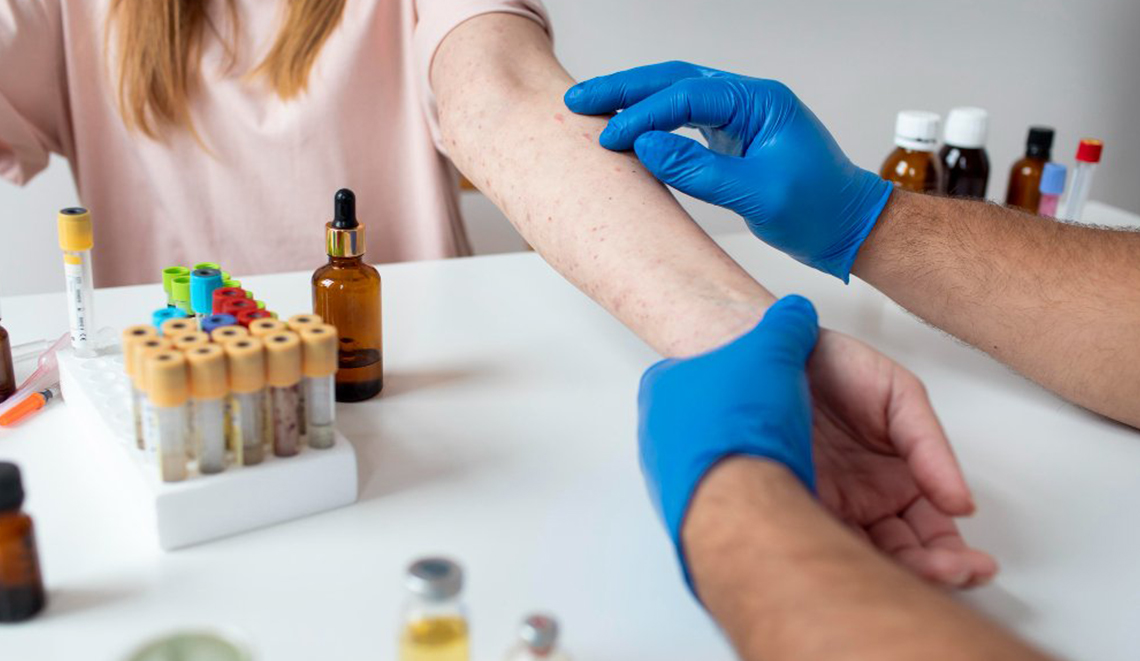The Role of Allergy Testing in Asthma Clinics

Asthma, a chronic condition, specified by wheezing, coughing, shortness of breath and chest tightness, requires medication and a proper strategy to treat the illness. To recognize which allergens are actually flaring-up your asthma, finding an allergy specialist Houston can greatly improve your asthma management and overall quality of life.
However, allergy tests alone are not sufficient to diagnose asthma because they cannot detect other asthma triggers like exercise, stress, or colds. Therefore, your doctor will consider your previous allergic reactions also.
The Connection of Allergy with Asthma
Since everyone reacts to allergies differently, it's important to consult a doctor if you develop any symptoms. Air allergens like dust, pollen, and pet dander can trigger allergic rhinitis, resulting in headaches, eye irritation, nasal congestion, trouble breathing, and sore throats. Food allergies can cause nausea, vomiting, diarrhea, and in severe cases, respiratory symptoms like coughing, wheezing, and chest tightness. People with allergies to metals or harsh perfumes may develop an inflamed and itchy rash in the area of contact. However, even if an allergic reaction seems minor at first, it's important to remember that these reactions can be unpredictable and severe.
Types of Allergy Tests
Allergies are a primary cause of asthma for many people. When you inhale an allergen, such as pollen or dust mites, your immune system reacts excessively. This response causes inflammation in the airways, leading to asthma.
To identify allergens, there are two major types of allergy testing for asthma:
Skin Prick Test: It is the most common method of allergy testing. A little quantity of allergen is pierced into your skin, and any reaction (raised bump or redness) suggests an allergy. These skin prick tests are rapid, reliable, and relatively affordable.
Blood Test (particular IgE): This test detects the presence of particular antibodies (IgE) in your blood that react to allergens. Blood tests can be beneficial if you have sensitive skin, take drugs that interfere with skin testing, or suffer from severe asthma.
Why is Allergy Testing Important?
Allergy testing is particularly important for people with asthma who require daily medication, but it can also be beneficial for those who experience occasional symptoms. By assisting in the identification of triggers, people can better control their asthma by avoiding them. For a doctor, it gets easier to personalize a treatment plan that includes preventive methods from allergens, controller medications, or prescription changes. Knowing what triggers an allergic reaction can help prevent severe reactions, often leading to potentially fatal asthma episodes. Furthermore, proper asthma management can improve quality of life by allowing for better breathing, increased activity, and fewer flare-ups.
The Role of Allergy Testing in Asthma Clinics
Allergy tests are conducted by healthcare professionals to determine allergy triggers that may worsen asthma symptoms. These tests also benefit those who have experienced severe allergic reactions, such as anaphylaxis. If you have a history of anaphylaxis or are at risk, it's important to carry an epinephrine auto-injector for emergency use.
Maintaining a Healthy Lifestyle with Allergies and Asthma
You can improve your asthma management and lead a more active and satisfying life by identifying your allergy triggers through testing and taking precautions to avoid them. Speak with your doctor if you have any questions regarding allergy testing or managing your asthma. They can direct you towards an effective strategy that will help you feel better and breathe more easily. Remember that allergy testing is just one piece of the puzzle, it's important to follow your doctor's asthma treatment plan for better results.

